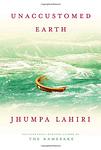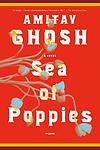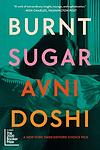The Greatest Indian "Fiction" Books Since 1900
Click to learn how this list is calculated.
This list represents a comprehensive and trusted collection of the greatest books. Developed through a specialized algorithm, it brings together 300 'best of' book lists to form a definitive guide to the world's most acclaimed books. For those interested in how these books are chosen, additional details can be found on the rankings page.
Genres
Countries
Date Range
Reading Statistics
Click the button below to see how many of these books you've read!
Download
If you're interested in downloading this list as a CSV file for use in a spreadsheet application, you can easily do so by clicking the button below. Please note that to ensure a manageable file size and faster download, the CSV will include details for only the first 500 books.
Download-
26. Vendor Of Sweeets by R. K. Narayan
The book centers around Jagan, a sweet vendor in India who lives by the principles of Gandhi, and his relationship with his westernized son, Mali. Despite Jagan's efforts to provide a traditional upbringing, Mali rejects his father's values and moves to America to pursue a career in writing. The novel explores the generational and cultural clashes between father and son, as Jagan struggles to understand his son's choices and the tension between tradition and modernity in post-colonial India.
-
27. The Painter Of Signs by R. K. Narayan
This novel is set in the bustling streets of Malgudi, India, and follows the life of Raman, a meticulous sign painter who prides himself on his dedication to his craft. His life takes an unexpected turn when he meets Daisy, a strong-willed and independent woman working on a family planning project. As Raman falls deeply in love with Daisy, his previously uncomplicated life becomes entangled with conflicting emotions and the challenges of adapting to someone with a radically different outlook on life. The story beautifully explores themes of love, tradition, and the clash between old and new societal values, all while painting a vivid picture of life in a small Indian town.
-
28. Rich Like Us by Nayantara Sahgal
Set against the backdrop of the Emergency in 1970s India, the novel weaves together the lives of two women from different social strata: an affluent London-born woman who marries an Indian businessman and a senior bureaucrat's daughter who becomes a political activist. As the political climate in India grows increasingly oppressive, their stories intersect, exploring themes of power, corruption, and the struggle for democracy. Through their personal and political journeys, the narrative delves into the complexities of wealth, class, and the impact of colonialism, while critiquing the authoritarian regime that threatens the moral fabric of Indian society.
-
29. Tamas by Bhisham Sahni
The book is a poignant narrative set against the backdrop of the communal riots during the partition of India in 1947. It delves into the lives of individuals and communities engulfed in the turmoil of the time. The story vividly portrays the descent into chaos and violence in a small town, as the once-peaceful coexistence between Hindus and Muslims is shattered by fear, suspicion, and hatred. Through its characters, the novel explores the human dimensions of a cataclysmic historical event, examining the complex interplay of social, political, and personal forces that lead to a devastating spiral of destruction and moral collapse.
-
30. Nampally Road by Meena Alexander
"Nampally Road" is a poignant narrative set against the backdrop of political turbulence in India. The story follows Mira Kannadical, a young woman who returns to Hyderabad after studying in England, only to find herself amidst a society rife with corruption, poverty, and political unrest. As she takes up a teaching position and begins to build a life, Mira's journey is interwoven with her personal quest for identity and her engagement with the struggles of the people around her. The novel explores themes of self-discovery, social injustice, and the complexities of postcolonial India, all while painting a vivid portrait of the city of Hyderabad and the titular Nampally Road, which becomes a symbol of the country's chaotic and vibrant life.
-
31. Incantations And Other Stories by Anjana Appachana
"Incantations And Other Stories" is a collection of short stories that delve into the lives of Indian women, exploring themes of tradition, modernity, and identity. The narratives often focus on the personal struggles and inner lives of these women as they navigate societal expectations and their own desires. Set against the backdrop of Indian culture, the stories blend the real with the surreal, weaving together the everyday with the magical through the use of incantations and folklore. The book offers a poignant look at the complexities of life and the power of storytelling in shaping one's reality and sense of self.
-
32. The Financial Expert by R. K. Narayan
The novel follows the life of Margayya, a shrewd and ambitious financial advisor in a small South Indian town, who starts his career under a banyan tree offering advice to the local people on financial matters. With his cunning mind and understanding of the banking system, he rises to wealth and prominence, helping people with loans and investment schemes. However, his success is marred by his morally questionable methods and the eventual downfall that results from his hubris and detachment from traditional values. The story is a reflection on the complexities of financial dealings and the impact of modern capitalism on traditional Indian society, exploring themes of ambition, greed, and the consequences of a life devoted to the pursuit of money.
-
33. Private Life Of An Indian Prince by Mulk Raj Anand
The novel delves into the tumultuous period of India's transition from British colonial rule to independence, focusing on the decline of a fictional princely state. The protagonist, a deposed Indian prince, grapples with the loss of his power and identity in the wake of the country's political upheaval. As he struggles to come to terms with his diminished status and the changing social order, the prince's personal turmoil reflects the broader existential crisis faced by Indian royalty during this era of monumental change. The narrative explores themes of tradition versus modernity, the impact of colonialism, and the search for self in a rapidly evolving world.
-
34. Train To Pakistan by Khushwant Singh
Set against the backdrop of the Partition of India in 1947, the novel delves into the tumultuous events that unfold in the border village of Mano Majra, where Sikhs and Muslims have coexisted peacefully for generations. As the country is cleaved into India and Pakistan, the once tranquil village is thrown into chaos by the arrival of a train filled with the corpses of Sikhs and Hindus, escalating communal tensions. The narrative follows the lives of several characters, including a young Sikh boy and a Muslim girl whose love story is threatened by the rising violence, and a local gang leader who faces a moral dilemma. Through these personal stories, the book explores the themes of human morality, the senseless brutality of mass violence, and the complex nature of religious and national identity during a time of crisis.
-
35. In Custody by Anita Desai
The novel explores the life of Deven Sharma, a Hindi literature professor in the small town of Mirpore, India, who finds himself entangled in the complexities of cultural preservation and personal ambition. Tasked with interviewing and recording the works of Nur, a fading Urdu poet, Deven confronts the decline of the Urdu language and the poet's own waning relevance. As he navigates the chaotic and often comical world of Nur's entourage, Deven grapples with his own unfulfilled dreams, a strained marriage, and the stark realities of academic life. The story delves into themes of linguistic heritage, the burdens of tradition, and the search for identity amidst the changing cultural landscape of India.
-
36. Nation Of Fools: Scenes From Indian Life by Balraj Khanna
This book offers a satirical glimpse into the complexities and contradictions of Indian society through a series of interconnected stories. It delves into the lives of diverse characters, from different strata of society, who navigate the challenges of tradition, modernity, and the absurdities of everyday life in India. With humor and keen observation, the narrative exposes the follies and vices of its characters, reflecting on the broader social and cultural issues that pervade a nation in the throes of change.
-
37. Waiting for the Mahatma by R. K. Narayan
"Waiting for the Mahatma" is a novel set against the backdrop of the Indian Independence movement. The story revolves around a young, carefree boy named Sriram who falls in love with a devoted disciple of Mahatma Gandhi, Bharati. His love for Bharati leads him to join the freedom struggle, despite his lack of political interest. The narrative explores his transformation from a reckless youth to a mature individual committed to the cause, under the influence of Bharati and the Mahatma. Despite the challenges and personal sacrifices, Sriram remains steadfast in his commitment to the freedom movement, showcasing the impact of love and ideology on personal growth.
-
38. A Strange And Sublime Address by Amit Chaudhuri
The book is a lyrical exploration of the nuances of everyday life, as seen through the eyes of a young boy during his summer visits to his extended family in Calcutta. The narrative delves into the boy's experiences and observations, capturing the essence of the city's vibrant culture, the idiosyncrasies of his relatives, and the slow rhythms of daily existence. Through a series of vignettes, the story paints a portrait of family life, the passage of time, and the subtle interplay between tradition and modernity in urban India.
-
39. Unaccustomed Earth by Jhumpa Lahiri
"Unaccustomed Earth" is a collection of short stories by Jhumpa Lahiri that explores the lives of Bengali immigrants and their children in the United States. The stories focus on themes of family, love, loss, and cultural identity as characters navigate the challenges of assimilation and the tensions between their American and Bengali identities. The collection is divided into two parts, with the first featuring interconnected stories about the experiences of two generations of a Bengali family, and the second featuring standalone stories that explore similar themes. Overall, the book offers a nuanced and poignant portrayal of the immigrant experience and the complexities of cultural identity.
-
40. Sea of Poppies by Amitav Ghosh
"Sea of Poppies" is a historical novel set in the 1830s, just before the Opium Wars. It traces the intertwined lives of a diverse group of characters, from a raja turned convict, a widowed poppy grower, a French orphan, to a mulatto American freedman, all of whom are brought together on the Ibis, a former slave ship now used for transporting opium. The story explores the social and economic impact of the opium trade, colonialism, and the caste system, while also delving into the personal histories, relationships, and struggles of the characters.
-
41. Q & A by Vikas Swarup
The book is a gripping tale of a young Indian waiter who becomes the biggest quiz show winner in history, only to be arrested for cheating. Through a series of flashbacks and heart-wrenching stories, we learn how his life experiences provided him with the answers to the show's questions. Each chapter reveals a different episode of his past, from his childhood in the slums to various encounters that taught him lessons about love, betrayal, and survival, painting a vivid portrait of the struggle and resilience of life in contemporary India.
-
42. The Fig Tree by Aubrey Menen
"The Fig Tree" by Aubrey Menen is a thought-provoking novel that delves into the complexities of identity and self-discovery. Set in India during the country's struggle for independence, the story follows the journey of a young man named Raman, who embarks on a quest to find his true purpose in life. Through vivid descriptions and rich character development, the novel explores themes of cultural clash, spiritual enlightenment, and the search for personal fulfillment. With its lyrical prose and insightful reflections, "The Fig Tree" offers a captivating exploration of the human condition and the universal quest for meaning.
-
43. Coolie by Mulk Raj Anand
"Coolie" is a poignant and powerful novel that delves into the life of Munoo, a young boy from a small village in India who is forced into a life of labor as a coolie. Set during the British colonial era, the story explores themes of exploitation, poverty, and the harsh realities faced by the lower classes. Munoo's journey takes him from his village to bustling cities, encountering both cruelty and kindness along the way, ultimately shedding light on the injustices of the time.
-
44. Out Of India by Ruth Prawer Jhabvala
"Out of India" is a collection of stories and essays that provide a rich and evocative portrayal of Indian society and the complexities of its cultural and social tapestry. The author, born in Germany and having spent a significant part of her life in India, uses her unique perspective to explore themes of identity, displacement, and the nuances of East-West encounters. Through vivid characterizations and keen observations, the book captures the essence of India, from its bustling cities to its rural landscapes, offering insights into both the beauty and the contradictions of the country. The work is a reflection on the author's experiences and observations during her time in India, making it both a personal and deeply insightful read.
-
45. Kanthapura by Raja Rao
"Kanthapura" is a powerful novel that tells the story of a small South Indian village as it becomes embroiled in the struggle for independence from British rule. Through the eyes of a young woman named Moorthy, the reader witnesses the transformation of the village and its people as they are inspired by the teachings of Mahatma Gandhi and join the fight for freedom. The novel explores themes of unity, sacrifice, and the power of nonviolent resistance, offering a poignant portrayal of the impact of colonialism on rural communities and the strength of the human spirit.
-
46. The Room On The Roof by Ruskin Bond
"The Room On The Roof" is a coming-of-age story set in Dehradun, India. The protagonist, Rusty, is a sixteen-year-old Anglo-Indian boy who feels suffocated by the rules and expectations of his guardian. Seeking freedom and independence, he befriends a group of Indian boys and experiences the joys and challenges of adolescence. Through his adventures, Rusty learns valuable lessons about friendship, love, and the importance of staying true to oneself.
-
47. The Middleman and Other Stories by Bharati Mukherjee
"The Middleman and Other Stories" is a collection of 11 short stories that explore the themes of cultural clashes, immigration, and the American Dream. The characters are immigrants from various parts of the world, including the Middle East, the Caribbean, and Asia, who are trying to navigate their new lives in America. The stories delve into the struggles, dreams, and realities of these immigrants, offering a unique perspective on multicultural America.
-
48. Burnt Sugar by Avni Doshi
This novel delves into the complex and fraught relationship between a mother and daughter against the backdrop of contemporary India. The daughter, now an adult, grapples with her mother's advancing dementia and the bitter memories of a childhood marked by neglect and unconventional parenting. As the mother's memory deteriorates, the daughter is forced to confront the painful legacy of their past and the ambiguity of her filial obligations. The narrative weaves through themes of memory, betrayal, and the inextricable bond of family, painting a portrait of two women bound by love and resentment in equal measure.
-
49. The Association Of Small Bombs by Karan Mahajan
"The Association of Small Bombs" by Karan Mahajan is a novel that explores the aftermath of a bomb blast in Delhi, India. The story follows the lives of two families affected by the tragedy, as well as the bomber himself. Through their perspectives, the novel delves into themes of grief, revenge, and the complexities of terrorism. Mahajan's writing is both intimate and expansive, offering a nuanced portrayal of the human impact of violence.
-
50. Tales From Firozhsha Baug by Rohinton Mistry
"Tales From Firozhsha Baug" is a collection of interconnected stories set in a Mumbai apartment complex. Through the lives of its diverse residents, the book explores themes of family, identity, and the complexities of urban life in India. With a blend of humor, compassion, and keen observation, the stories shed light on the struggles, dreams, and resilience of ordinary people, capturing the essence of a vibrant community in a rapidly changing city.
Reading Statistics
Click the button below to see how many of these books you've read!
Download
If you're interested in downloading this list as a CSV file for use in a spreadsheet application, you can easily do so by clicking the button below. Please note that to ensure a manageable file size and faster download, the CSV will include details for only the first 500 books.
Download
















